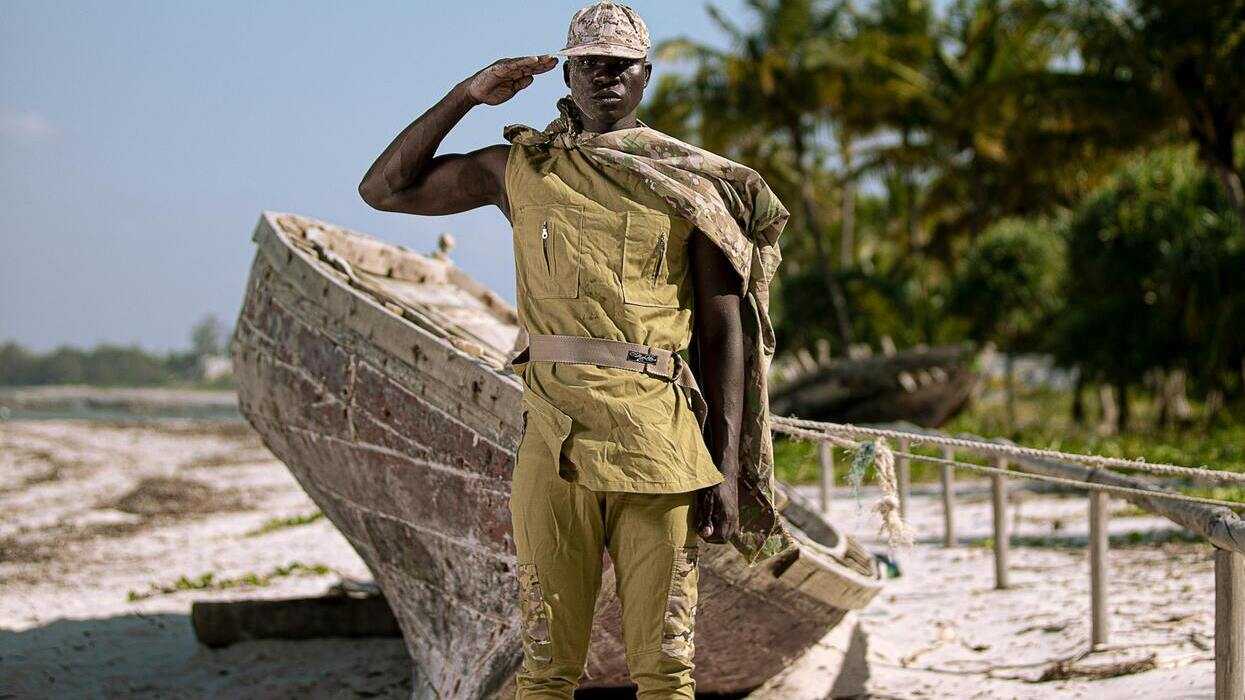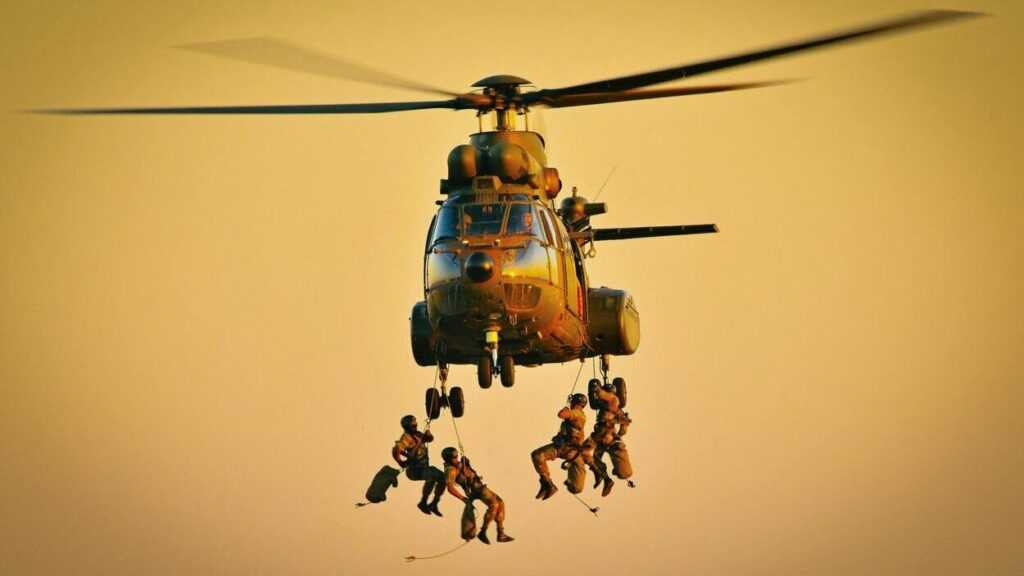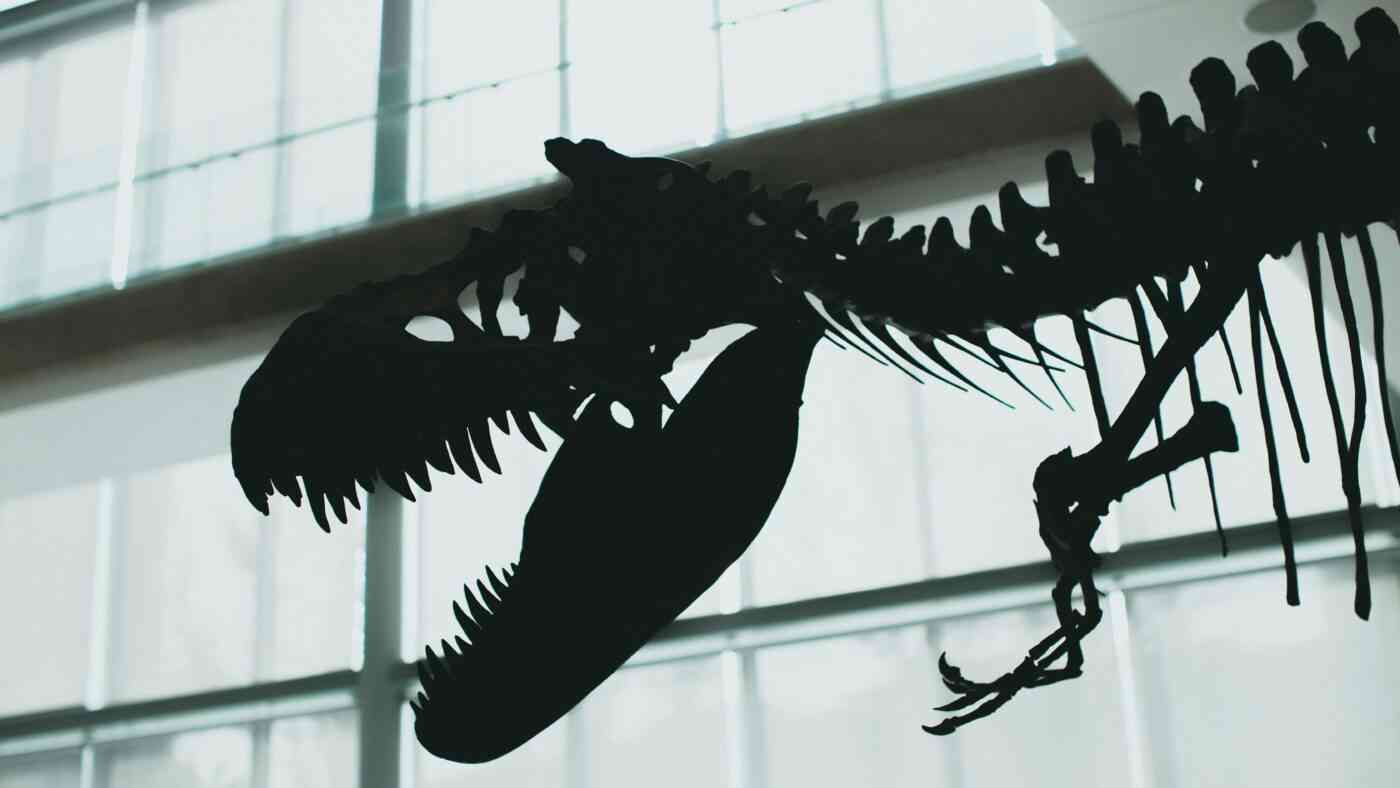Science
Ghost in the Stone: AI Uncovers Prehistoric Clues That Could Rewrite Bird Evolution
17 February 2026

For decades, France was the undisputed “Gendarme of Africa,” projecting military and political influence across the continent. But now, its troops are retreating – boot by boot – from one nation after another. And where France steps back, Russia is rushing in. This isn’t just a power shift – it’s a full-blown geopolitical takeover. As a leaked Wagner Group memo bluntly put it, “Africa is a region of the world where the interests of all global powers converge.”
For decades, France wasn’t just a player in Africa – it was the power broker. When colonial rule collapsed in the 1960s, Paris didn’t walk away. Instead, it perfected a new kind of influence: military muscle, political leverage, and economic control. From 1964 to 2014, French forces launched over 50 military interventions across the continent – propping up allies, toppling threats, and acting as Africa’s self-appointed policeman. The world accepted France’s role as the region’s crisis manager. But now, that era is over.
In February 2025, France quietly pulled nearly all its troops from Côte d’Ivoire – a rare smooth withdrawal in its unraveling African mission. But just weeks earlier, its exit from Chad erupted into a diplomatic firefight. The clash came after President Macron accused African nations of “ingratitude” for France’s counterterrorism efforts. Chad’s leader, Mahamat Déby, fired back with brutal clarity: Where was France when Boko Haram slaughtered their soldiers? The message was unmistakable – Paris’s era of calling the shots in Africa is over. And as French forces retreat, the scramble for influence is already underway.
The writing was on the wall long before Chad’s explosive showdown with Paris. Military regimes in Mali, Niger, and Burkina Faso had already kicked French troops out – and by the end of 2025, Senegal will follow. Across West and Central Africa, President Déby’s stance is becoming increasingly widespread. He declared that Chad would only build reciprocal relations with friendly nations that respect each other’s independence and sovereignty and assist each other in times of crisis. At the same time, he promised to stop ties with countries that “behaved as if Chad had remained their colony.”

Chadian President Déby’s defiance – demanding partnerships based on “respect, not colonialism” – is now the rallying cry across the Sahel. But this anti-French sentiment didn’t arise spontaneously. For years, foreign intelligence services, especially Russia’s, have been methodically reshaping African perspectives.
Moscow is no stranger to this game. During the Cold War, the USSR armed liberation movements, trained future leaders, and positioned itself as the anti-colonial alternative to the West. Now, Russia is executing a 21st-century replay: leveraging discontent, amplifying anti-French narratives, and filling the void with mercenaries, propaganda, and “regime survival” packages.
A leaked 2019 Wagner Group memo obtained by Le Monde lays bare Moscow’s ambitions in chilling clarity: “Africa is a region of the world where the interests of all global powers converge. A country’s position on the international stage depends directly on its influence on the African continent.”
This isn’t a new strategy – it’s revived Cold War doctrine. The USSR once flooded Africa with arms, trained Marxist revolutionaries, and propped up regimes from Angola to Ethiopia. Now, Putin’s Russia is executing a 21st-century reboot in Africa.
While France stumbles, Russia strides in – not with colonial baggage, but with no-strings-attached strongman support. The result? Moscow’s African footprint now stretches from Libya’s oil fields to the Central African Republic’s diamond mines. The message to Washington and Brussels is clear: Underestimate Africa’s strategic value again, and lose the next great power game.
See also: The Dream of Paradise on Earth Never Dies. Hell Comes as Part of the Package
Russia didn’t stumble into Africa – it conquered it through decades of calculated strategy. From the Soviet era onward, the Kremlin masterfully weaponized anti-Western resentment, hammering colonial powers as exploiters while positioning itself as Africa’s “true” ally.
When colonial empires crumbled, Moscow pounced – turning newly independent nations into Soviet client states. Algeria. Egypt. Mozambique. The USSR didn’t just offer aid; it armed liberation movements and installed puppet regimes, all while posing as the global south’s anti-imperialist savior.
Few institutions did more to spread Soviet influence in Africa than Moscow’s Patrice Lumumba Peoples’ Friendship University. Named after the murdered Congolese independence leader (whose 1961 assassination involved Belgian and CIA operatives), this was no ordinary school – it was the USSR’s premier training ground for Africa’s future revolutionary elite.
While these extremists made global headlines, thousands more Lumumba University graduates returned home to quietly assume positions of power – creating networks of Soviet influence that would last decades. Today, as Russia renews its African push, this Cold War pipeline of ideological allies may prove more valuable than ever.
Read also: “Friends, You Are at War”. How to Conquer a Country Without Firing a Shot
While Washington slept, Moscow moved. Over two decades after the Soviet collapse, Russia isn’t just back in Africa – it’s dominating. And it’s doing it with a brutal cocktail of Wagner mercenaries, cheap propaganda, and cold, hard opportunism.
The era of French dominance in Africa is over. In its place? A new wave of Russian flags, Wagner thugs, and Kremlin-backed strongmen calling the shots. Putin’s playbook is ruthless but effective: Flood the zone with cheap guns, mercenaries, and anti-Western rage. Autocrats and coup leaders gladly take the deal – Russian muscle in exchange for loyalty, mines, and military bases. Meanwhile, Wagner’s killers keep dissenters in line, while Moscow’s propaganda machine pumps out cartoons and memes painting France as the villain.
The plot of the propaganda videos was terrifyingly simple. For instance: a local citizen is reading a newspaper when suddenly a hole opens in the floor, and a small rat jumps out. The rat grabs a piece of cheese and scurries away, avoiding a newspaper thrown at it. But soon, a much larger rat emerges from the hole, wearing a sweater with the French flag. It steals food from the shelves and wreaks havoc in the apartment.
Meanwhile, a French radio broadcast says: “Rats never steal. On the contrary, they do a lot of good…” The first rat disappears under the floor, but shortly afterward, a much bigger and more aggressive rat appears, with large teeth. It heads straight for the owner and declares: “This is my house now. Get lost!”
Related: The Republic of South Africa: The World’s Most Unequal Country?
A frightened older man sits at his kitchen table, nervously clutching a crumpled newspaper. His eyes dart across the page until they lock onto a small, bold advertisement. Beneath it, a phone number glows faintly, as if beckoning him. The man hesitates, then reaches for his phone with trembling hands. The sound of dial tones echoes – sharp, deliberate. A pause. Then, a gruff voice answers in Russian-accented English: “Wagner. Speak.” The man stammers,“”I – I need help. There’s an intruder. A rat. A French rat.” A chuckle. “Da. We handle rats.”
A knock rattles the door. The man peers through the peephole to see a towering, bearded mercenary in a mismatched uniform – no rifle, just a weathered violin case. He opens the door cautiously. The mercenary strides in, drops the case on the table, and flips it open. Inside: a massive hammer, its head emblazoned with a gleaming “W.” “Where is a rat?” he growls. The French rat (now human-sized, wearing a beret and a smug grin) leans against the wall, twirling a baguette. “Zis is my house now,” it sneers. The Wagner mercenary hefts the hammer. “Nyet.” SWING – BOOM! A comic-style impact blast fills the air as the hammer connects. The rat’s eyes spin, stars orbiting its head.
Silence. The older man exhales. The mercenary wipes the hammer clean and extends a calloused hand. “Problem solved,” he rumbles. The man shakes it gratefully, relief washing over him. The violin case snaps shut. Fade to black. Caption: “Wagner Group: When Diplomacy Fails.”
The next scene is accompanied by cheerful African rhythms. It’s no surprise, as we see a blissful picture: the homeowner is sitting at a table with his granddaughter and the mercenary, enjoying tea. Meanwhile, the homeowner’s wife is roasting a large rat with the French flag on a spit.
In another clip, we see zombies chanting: “The Assembly wants Macron. Now this is our country.” The zombies, wearing helmets with French colors, advance mechanically under fire from a Malian soldier standing defiantly with his rifle against the backdrop of his national flag. Yet even he must eventually admit: “There are too many of them. I’m running out of ammo.” Then, a helicopter appears. From it leaps a mercenary with a Russian flag on his sleeve and a skull emblem symbolizing the Wagner Group. “Do you need support, my friend?” he asks.
Moments later, the Black soldier opens fire with a heavy machine gun of devastating power, while the Russian mercenary feeds him a fresh ammo belt. The zombies don’t stand a chance. As the last creature falls, the Malian soldier nods in gratitude. The Wagner fighter claps him on the shoulder and replies in rough but earnest French: “Je suis heureux de t’avoir aidé.” (“I was happy to help, my friend.”) Behind them, the helicopter’s rotors kick up dust – and the skull emblem on the merc’s sleeve glints in the sun.
In the next scene, the Élysée Palace is shown, where plans to take over Burkina Faso and Côte d’Ivoire are being discussed. The mechanism is the same – a tricolor dragon or some other beast attempts to seize an African country but encounters local resistance, which only becomes effective after calling in the Wagner Group for help. The whole scene is punctuated by the familiar slogans: “Down with imperialism! Down with France!”

Recommended: The Immigration Failure of the French Elite
Russia has a significant advantage in Africa that helps its tactics thrive – it never officially colonized the continent. This unique position allows Moscow to leverage anti-colonial sentiment, presenting itself as a “friendly” partner, much like it did during the Cold War.
The Wagner Group, which later rebranded as the “Africa Corps,” exposes its true nature through its operations in places like the Central African Republic (CAR). Despite numerous reports of rape, looting, and assassinations, Wagner’s mercenaries continue to receive lucrative contracts for mining gold, gemstones, and uranium from local authorities.
The profits from these resources fund recruitment and arms purchases, creating a vicious cycle of exploitation. Meanwhile, African leaders, fearing rebel uprisings, increasingly rely on Wagner’s “protection.” This dependency is now solidified – literally – in Bangui, the capital of CAR, where bronze statues now stand in honor of Yevgeny Prigozhin and Dmitry Utkin, the late commanders of Russia’s mercenary forces.
As France’s influence in Africa wanes, the continent is becoming an increasingly attractive target not just for Russia, but also for China, its largest trading partner. In 2024, President Xi Jinping pledged over $50 billion for infrastructure and trade investments in Africa. Chinese weapons are already flooding the barracks and stockpiles of African nations.
While France is withdrawing, French officials insist this is not the end. Minister of Armed Forces Sébastien Lecornu stated, while pulling out the majority of French forces, “France is changing its presence, France is not disappearing.”
However, according to Thierry Vircoulon, an expert at the French Institute of International Relations’ African Centre, “There is a clear collapse of French policy in Africa. The withdrawal of French troops and essentially the end of French military presence in Africa is a symbol of that collapse.”
In France, it has suddenly become clear that the country needs to focus more on securing European interests than on maintaining its former colonies. But can France regain its geostrategic position? Will it be able to influence stability in Africa on its terms, as it once did? Given the current situation, a positive answer would seem overly optimistic. Similarly, the hope that African nations will recognize Paris’s authority without considering its military capabilities also appears unlikely.
Translated, edited, and compiled from the Polish version by Joanna Sarata
Read the text in Polish: Pożegnanie z Afryką. Tak Rosja wypiera Francję
Science
17 February 2026

Science
17 February 2026


Zmień tryb na ciemny